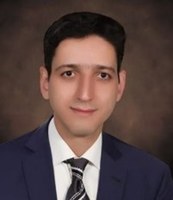Fata Moradali, Ph.D.
 Assistant Professor
Assistant Professor
Dept. of Oral Immunology and Infectious Diseases
Room 355, School of Dentistry
Office Phone: 502-852-5528
Email: fata.moradali@louisville.edu
ORCID ID: 0000-0002-0230-5006
Research Updates & News:
https://moradalilab.carrd.co/
Research Scope: Immune Signaling Architecture in Chronic Inflammatory States
Immune signaling networks determine how host cells integrate environmental cues, coordinate multiple inputs, and sustain or resolve inflammation. These outcomes are governed not by single receptors, but by system-level signaling programs whose strength, timing, and persistence shape immune behavior. Disruption of these programs underlies many chronic inflammatory and immune-mediated diseases, yet the principles by which immune signaling becomes dysregulated and self-sustaining remain poorly defined.
Our laboratory studies fundamental principles of immune signal integration using a systems-based framework, with a focus on how microbiome-derived cues reshape innate immune signaling to promote persistent inflammatory states. Rather than examining isolated pathways, we investigate how immune cells integrate cytosolic and surface-derived signals over time, how feedback mechanisms reinforce signaling programs, and how these dynamics generate durable immune phenotypes associated with chronic diseases.
A defining aspect of our work is the application of quantitative and mathematical modeling to immune signaling. We develop standardized, pathway-resolved analytical frameworks that enable comparison of immune signaling potency, kinetics, and persistence across microbial stimuli, cell states, and clinical samples. These approaches support reproducibility, scalability, and translational interpretation, bridging mechanistic immunology with biomarker discovery and therapeutic evaluation.
Our research emphasizes the temporal and spatial organization of immune signaling, examining how late-phase responses diverge from early activation events and how intracellular signal compartmentalization contributes to sustained immune states. We also investigate how cellular differentiation and immune context determine signaling capacity, providing insight into inter-individual variability and disease heterogeneity.
By integrating immunology and microbiology with biochemistry, molecular biology, systems biology, multi-omics analytics, advanced imaging, and computational modeling, our laboratory captures immune signaling as a coordinated biological system. Human clinical samples are central to this work, ensuring biological relevance and translational applicability.
Ultimately, our goal is to define generalizable, quantitative principles that govern immune signal persistence and to translate these insights into standardized tools for diagnosis, immune modulation, and therapeutic intervention across chronic inflammatory diseases, cancer, and host-microbiome-driven pathology.
Current lab members
 | Masoud Hamidi, Ph.D. Postdoctoral Associate |
| Suraj Adhikari, Ph.D. Postdoctoral Associate |
Former lab members
| Ratnam Seelan, Ph.D. Former Senior Scientist |
|---|
Selected Publications
- The multifaceted role of c-di-AMP signaling in the regulation of Porphyromonas gingivalis lipopolysaccharide structure and function. Front. Cell. Infect. Microbiol. 14:1418651 (2024)
- Growth of Porphyromonas gingivalis on human serum albumin triggers programmed cell death. J Oral Microbiol,15(1):2161182 (2023)
- Atypical cyclic di-AMP signaling is essential for Porphyromonas gingivalis growth and regulation of cell envelope homeostasis and virulence. npj Biofilms and Microbiomes 8, 53 (2022)
- Metabolic plasticity enables lifestyle transitions of Porphyromonas gingivalis. npj Biofilms and Microbiomes, 7(1):46 (2021)
- Biopolymers for biomedical and biotechnological applications. John Wiley & Sons (2021)
- Microbial cell factories for biomanufacturing of polysaccharides. In: Biopolymers for biomedical and biotechnological applications. John Wiley & Sons. (2021)
- PPAD activity promotes outer membrane vesicle biogenesis and surface translocation by Porphyromonas gingivalis. Journal of Bacteriology, 203(4) (2020)
- Bacterial biopolymers: from pathogenesis to advanced materials. Nature Reviews Microbiology, 18, 195–210 (2020)
- The regulation of alginate biosynthesis via cyclic di-GMP signaling. In: Microbial cyclic di-nucleotide signaling. Springer (2020)
- Amino acids as wetting agents: surface translocation by Porphyromonas gingivalis. The ISME Journal, 13: 1560–1574 (2019)
- The role of alginate in bacterial biofilm formation. In: Extracellular sugar-based biopolymers matrices. Biologically-inspired systems, vol 12. Springer (2019)
- Alginates and their biomedical applications. Springer. (2018)
- Activation mechanism and cellular localization of membrane-anchored alginate polymerase in Pseudomonas aeruginosa. Applied and Environmental Microbiology, 83 (9) e03499-16. (2017)
- Alginate polymerization and modification are linked in Pseudomonas aeruginosa. mBio, 6 (3) e00453-15 (2015)

